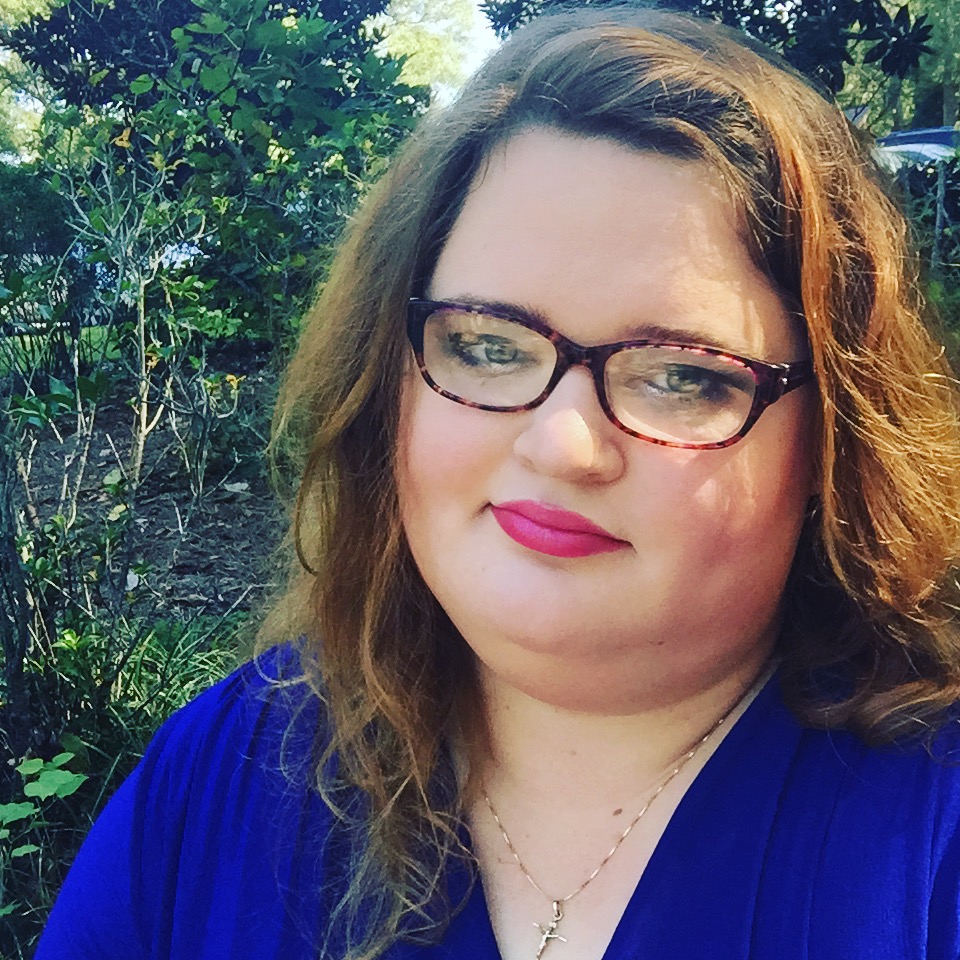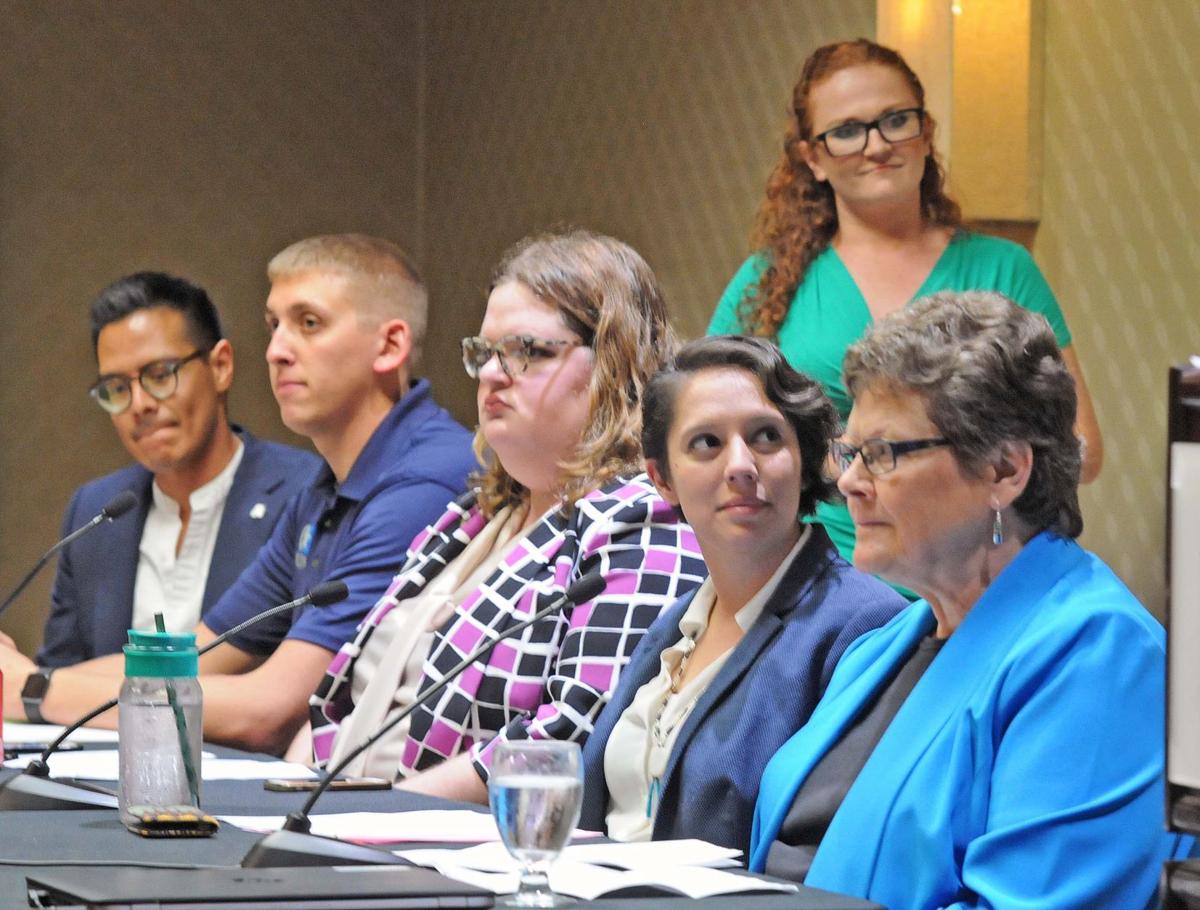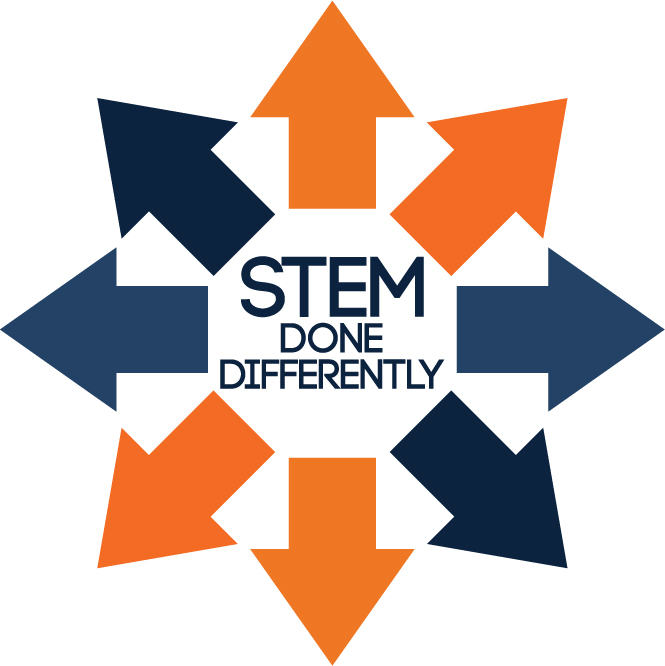Complicated Answers
So, who is Darcy Jeda Corbitt-Hall? “That’s a complicated question,” she answers, acknowledging the exact reason I wanted to ask it. “I’m a scientist. I’m a trans person. I’m an advocate. I’m a teacher… I’m an overall badass.”
Darcy, who is working on earning her PhD in Human Development and Family Studies at Auburn University, has led an interesting life to say the least. She grew up in the Auburn area and went to a private high school in Opelika, Alabama, just outside of Auburn. When I asked where she went to get her undergraduate degree, she told me that was a complicated question, as well. She attended Faulkner University for eight months, but due to opinions on her status as LGBT she dropped out after the Spring Break of her Freshman year. She transferred to Southern Union Community College where she attained her associate degree before heading back to Auburn to earn bachelor’s degrees in English and Psychology. About her early undergraduate experience, she told me, “Either I could go to counseling to get ‘fixed,’ or I could leave... There wasn’t anything to fix, so I left. Actually, when I started out, I was going to be a minister… So, that didn’t work out.” She continued, “My journey to become who I am now, to affirm my identity and live an authentic life sort of corresponded with that whole Freshman year of college.” A lot of people tend to think she became trans, but rather she is trans. In other words, she didn’t become Darcy, she stopped living someone else’s life and began living her own. Living an authentic life is important, and she’s just being the person she’s supposed to be.
It Was a Good Decision
When I asked why she returned to Auburn for graduate school, she told me it wasn’t because she was particularly attached to the area. “I went to North Dakota State University and was working on a PhD in Clinical Psychology.” She completed the coursework for a master’s degree but hadn’t yet written a thesis before another opportunity arose. “My advisor, Dr. Troop-Gordon, had gotten a job at Auburn… Completely a coincidence, I’m back! So, I move back, and then there are days where I’m like, ‘huh, why did I move back,’” we laughed, “but I’m very happy in my program and my job. It was a good decision.”
The job that she mentioned is as a research assistant, where she studies peer relationships and how they affect long term psychosocial development. Specifically, she is interested in middle childhood to emerging adulthood, which is from approximately third grade to around age 25. She told me that what happens in childhood affects who we are as teenagers, which creates a domino-like effect that influences who we are for the rest of our lives. “Middle-age White men have the highest suicide rate of any non-minority group, and trans people have the highest of any minority group. To get that number down,” she said, accentuating each word with a tap of her fingernails on the table around which we were sitting, “we have to look back and see what patterns of behavior are being established early and what social interactions are going to exacerbate any psychological or social problems people are going to have.” Bullying is a huge problem that children face which affects long term psychosocial development. In conjunction with other psychological strains, bullying can lead to psychiatric problems in adulthood such as depression, anxiety and suicidality. “I went to a talk where the speaker said, ‘suicide prevention is so focused on pulling people out of the river that they don’t look at who is throwing them in,’” she said. After that talk, she decided to look back at ‘who was throwing them in,’ and as such, her publications to date focus on social media being used to provide peer support, which has been shown to reduce suicidality.
A Necessary Experience
Thus far, we’ve seen Darcy as a scientist and as a trans person. However, as mentioned prior, she’s also an advocate. She’s currently involved in a lawsuit, Corbitt, et al. v Taylor, et al., which challenges the state of Alabama’s policy of refusing to change driver’s license gender identifications for trans individuals who have not undergone gender reassignment surgery. “It’s not been a pleasant experience,” she told me, “but it’s a necessary experience. Not just for me, but for people who don’t have the same level of privilege and safety as I do.” Furthermore, she is President and CEO of the Darcy Jeda Corbitt Foundation, which focuses on trans and queer advocacy across the nation. “I did a lot of public speaking on behalf of my community and I made a lot of money doing it… I probably should’ve spent it on myself,” she joked. But she didn’t. Instead, she transferred the intellectual property rights of the writings on her personal web page to My Transition Partner and donated the money to them, which then adopted her name as their corporate name. It’s the first resource of its kind, containing information for people in the LGBT community or people seeking to be allies. Moreover, it’s free and it helps approximately 700 people every week. She’s currently on sabbatical as CEO, and while hesitant to do so at first, she did have a reaction to the increase in time to focus on her studies: “Hmm, I kind of like this!”

Darcy Corbitt-Hall
Wanting to bridge the gap between her roles as a scientist and as an advocate, I asked about her thoughts on the trans community’s inclusion in STEM. She feels STEM isn’t always warm to those who are trans, but it’s not an aspect of the field that is impossible to change. It’s a symptom of years of exclusion, and it’s not that the field isn’t changing, but she called this progress a “slow-turning wheel.” The best way to keep this wheel of change turning? According to her, making people uncomfortable. “I live to make people uncomfortable! That is my specialty and I am good at it,” we laughed, “I really don’t even have to do anything… I just have to wake up every day and I’m doing my job.”
In that vein, when she teaches she “subscribes to the pedagogy of discomfort.” She explains, “That’s one thing I remember from exercising: If you’re in pain, you’re improving, you’re gaining muscle… I don’t like being in pain anymore, so I don’t exercise,” she quickly clarified as we shared another laugh. “I think that education is very important, that mandatory cultural sensitivity, not just for trans people but for women, people of color, is very important. I think there needs to be an intentionality.” Furthermore, about diverse inclusion she believes there needs to be purposeful recruitment of faculty and graduate students who identify as racial, ethnic, sexual and gender minorities to incease diverse representation. She also stressed the intention of doing it not just for patting yourself on the back but doing it because it really matters to these communities and the population at large. “Sometimes, people talk about diversity and inclusion to prove they’re ‘woke,’” she said as we laughed and she made air quotes with her fingers, but it needs to be more than that. She doesn’t hold herself as a “paragon of woke-itude,” a fantastic term she improvised during our conversation, but she does believe diverse inclusion needs to be a priority, not a secondary thought.

Darcy, center, speaking at a panel in North Dakota. Retrieved from The Bismarck Tribune.
Regarding specifically the advice she would give an LGBT individual who wants to get into STEM, she invoked a phrase we’re all familiar with: “Just do it.” She is aware that she’s unique as a trans person in a PhD program, and whereas hopefully that could change one day, we’re not quite there yet. “Regardless of the support you may have, it’ll be hard. People will want to tokenize you. In STEM fields, affirming you won’t be the focus like it is in the arts,” she uses as an example, and she continues, “you’re going to have people say stupid things because they don’t understand. You should not let other people’s bad behavior, their lack of awareness, their ignorance prevent you from doing what you want to do… You can do anything. Well, you can’t fly,” we laughed, but the sentiment remains. She asserts the importance of not taking ignorance sitting down, to fight when the situation necessitates it, and if you may not have developed the confidence to do that just yet, find an ally to help you. Furthermore, she has a message to anyone who may need help in their journey: “I am ready.” She has a very specific suit she wears when she needs to make a point and she assured me she won’t hesitate to don that suit when action needs to be taken. When it needs to go down, it “will indeed go down.”
In closing, she would advise traditionally underrepresented individuals who are getting into STEM, “when you get to wherever you’re going… Find a group of people who have your back. Don’t be afraid to lean on them. It’s hard to do this alone, and they don’t necessarily have to be just like you… You’re going to feel bolder, and when you feel bolder you’re going to do what you’re going to do. And you’re going to become a badass.”

Darcy Jeda Corbitt Foundation: https://www.darcycorbitt.org/
ACLU Corbitt et al. v Taylor et al.: https://www.aclualabama.org/en/cases/corbitt-et-al-v-taylor-et-al
By Matt Gonzales
I'd like to thank Darcy Corbitt-Hall for sitting for an interview with me and Jarrett Rogers for logo design

